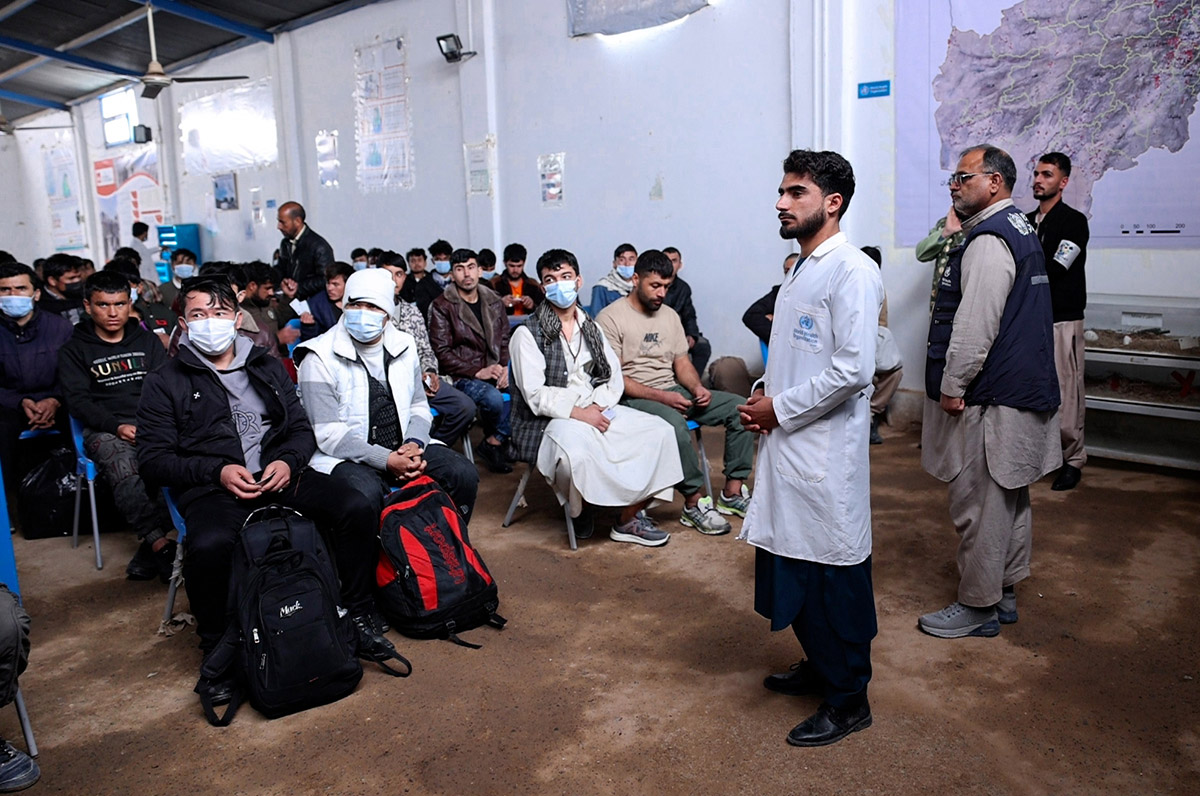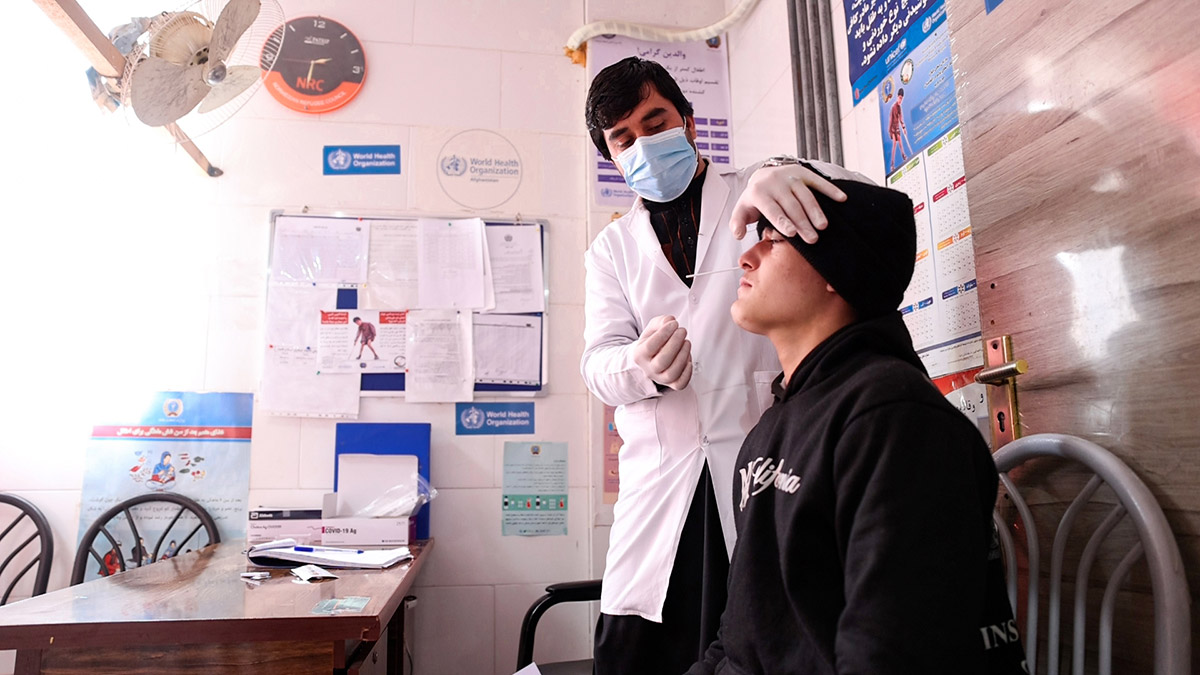19 May 2025, Kabul, Afghanistan – From 1 to 30 April, more than 250 000 Afghans returned from Pakistan and the Islamic Republic of Iran, including about 107 000 deportees.
A crisis is unfolding at both major borders. Arriving returnees are exhausted, scared and traumatized as they face an uncertain future in a country where 22.9 million people depend on humanitarian assistance to meet their basic needs. Many suffer health problems, compounded by high levels of poverty and food insecurity and a lack of protection coverage.
Commonly reported health issues among returnees include trauma, malnutrition, infectious diseases such as acute watery diarrhoea and acute respiratory infections, and mental health problems.
Together with other humanitarian partners, the WHO-supported Public Health (PH) team at Islam Qala crossing on the Iranian border has been providing vital health care to returnees. In April, approximately 4500 people received PH team outpatient consultations, with around 1400 receiving free medicines. The PH team also provided health education to about 26 000 people.
 A WHO-supported Surveillance Support Team conducts health education sessions for returnees at Islam Qala border. Photo credit: WHO Afghanistan
A WHO-supported Surveillance Support Team conducts health education sessions for returnees at Islam Qala border. Photo credit: WHO Afghanistan
In the same month, a WHO-supported surveillance support team (SST) in Islam Qala screened around 105 000 returnees and regular passengers. SST screening includes temperature checks, identification of symptoms of communicable diseases and the referral of suspected COVID-19 and other infectious disease cases. Six male and female vaccinators are deployed in Islam Qala to provide oral polio and inactivated polio vaccines.
 A WHO-supported Surveillance Support Team screens a returnee, ensuring early detection and swift public health response. Photo credit: WHO Afghanistan
A WHO-supported Surveillance Support Team screens a returnee, ensuring early detection and swift public health response. Photo credit: WHO Afghanistan
“Our team members treat patients with minor trauma and provide outpatient services and health education to returnees,” said Dr Noor Ahmad Mohammadi, head of the WHO-supported Public Health Clinic in Islam Qala Reception Centre. “On average, around 200 people visit our clinic each day for health care services and medicines.”
The Centre serves as the first point of contact for returnees with urgent health issues.
“I was feeling very dizzy and thirsty. I almost fainted on the way. My friends immediately took me to the clinic in the Reception Centre. The doctors checked my blood pressure and assured me that everything will be okay. They did some blood tests and gave me medicine,” said returnee Mohammad Reza.
“The staff were very welcoming. I am very grateful to them and to those who support the Centre.”
“Without timely support, the continuity of these lifesaving services is at risk, especially with the surge in returnee arrivals anticipated in the coming months,” said WHO Representative and Head of Mission in Afghanistan Dr Edwin Ceniza Salvador.
“Amid severe funding cuts, additional international assistance is needed to provide much-needed health care services and specialized support to women and children at risk.”



